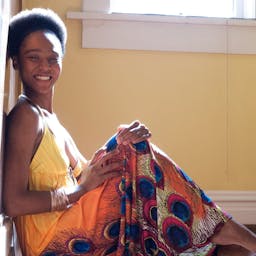To Retell The Story; To Find Language for An Authentic Sharing
Jan 21, 2015
Story
A couple of years ago, I took a workshop with this great woman, Molly May, called Writing From the Body. It came at a great time in my life, as I had begun to do healing around my sexual and emotional trauma. I was understanding then that our bodies held the story but was not sure how to access words. As a writer, I find myself writing and rewriting stories about my life constantly. There have been times I have refused to write in my journal because I was sick of writing the same pain over and over. Most of the time, giving the emotions a tangible form helped me heal the wounds.
There was a particular exercise during this workshop, in which we were encouraged to retell a story from a different perspective. We had spoken about how the way one tells their story is linked to what work one have done to shift what they made it mean. I am thinking about what I wrote that day, about experiencing a mixture of sexual and emotional trauma. This weekend I will be going to my alma mater, the State University of New York at New Paltz to an annual event called Take Back The Night. It is part of a larger movement of events around the globe who seek to end sexual assault, domestic violence, dating violence, sexual abuse and all other forms of sexual violence. Take Back The Night empowers survivors in the healing process. This event was important to me during my undergraduate career because it was the first time I felt a community of women who had similar stories and traumas as my own. I was honored to be invited to talk at the event this year and have been thinking about what message I want to share with the women I will meet.
I've thought about how I have come to use words to communicate my experiences. I remember what it has sounded like. At first it had no words. All I had was feelings. Mostly fear, which is what prevented me from even writing it. Then, as I heard other women share their story, I knew I had one too. I used the words around and within me. I found that talking to my close kin and therapists about it helped me understand what I was feeling. That's when I wrote about the shame and guilt that came from such experiences. I gave it words that felt right and some that felt uncomfortable. Something changed though, when I first began to seek therapy. The word trauma had always felt the most true to me; adding a specification clarified it for me even more.
A friend told me that I could give my experiences whatever vocabulary honored my feelings. I reserve all the intricate details of my experiences in my journal and therapeutic sessions with friends and healers. I learned from one of those sessions that retelling painful details were a way to retraumatize myself and those listening. My story then, is understanding that the emotional and sexual trauma did not define my life; I had felt like it was part of my identity. Using the word \"experience\" has made me look at my stories with more compassion for myself. I realized in writing about these things that it was what I made myself believe about who I am that did the most damage.
The human psyche is so delicate. I know that whatever thoughts I keep circling within me affected my well-being. The thoughts were of the memories but more than anything, it was negative self-talk. Making myself feel tainted and ashamed because of the internalized messages about sex I received from society. I discovered that it was more about the aftermath, about the wound. I came across a concept that made me examine these traumas from another place.
You are not responsible for having inflicted your wounds, but you are responsible to them. Those words struck me. It called for forgiveness of the experience, for the other person and mainly, for myself. Forgiveness is about making peace with the past. I have learned that forgiving began to lessen the charge around the memories. I was able to understand that these experiences stunted my ability to draw healthy boundaries. In forgiving myself for thinking it was my fault, it was also a way to tend to the wounds so that they could heal.
I used my writing to speak about using these experiences to realize that my ability to choose was taken from me. That surviving and living were two different things. In writing more about how all my life experiences were interconnected, I understood how violence to every person in my life made for the unpleasant and violent encounters, on emotional, physical, mental, and spiritual levels. The biggest thing I have learned is that releasing and being free of the pain and learning lessons from experiences were not mutually exclusive. I recognize that to reach a place of peace with a story, I've had to tell it and write it over and over again, so that every feeling inside me had an opportunity to speak. I wish to offer myself and other women ways to release the traumas we face on horrible scales. As we fight to eradicate violence, treating ourselves compassionately is vital. It is important that we also work to heal the wounds so we can remember we are whole. It wasn't until I began to show compassion to myself that I could help and support others in healing. I have learned I am not anything that has happened to me, good or bad, but rather, I am what I have let those experiences do to who I am becoming.




